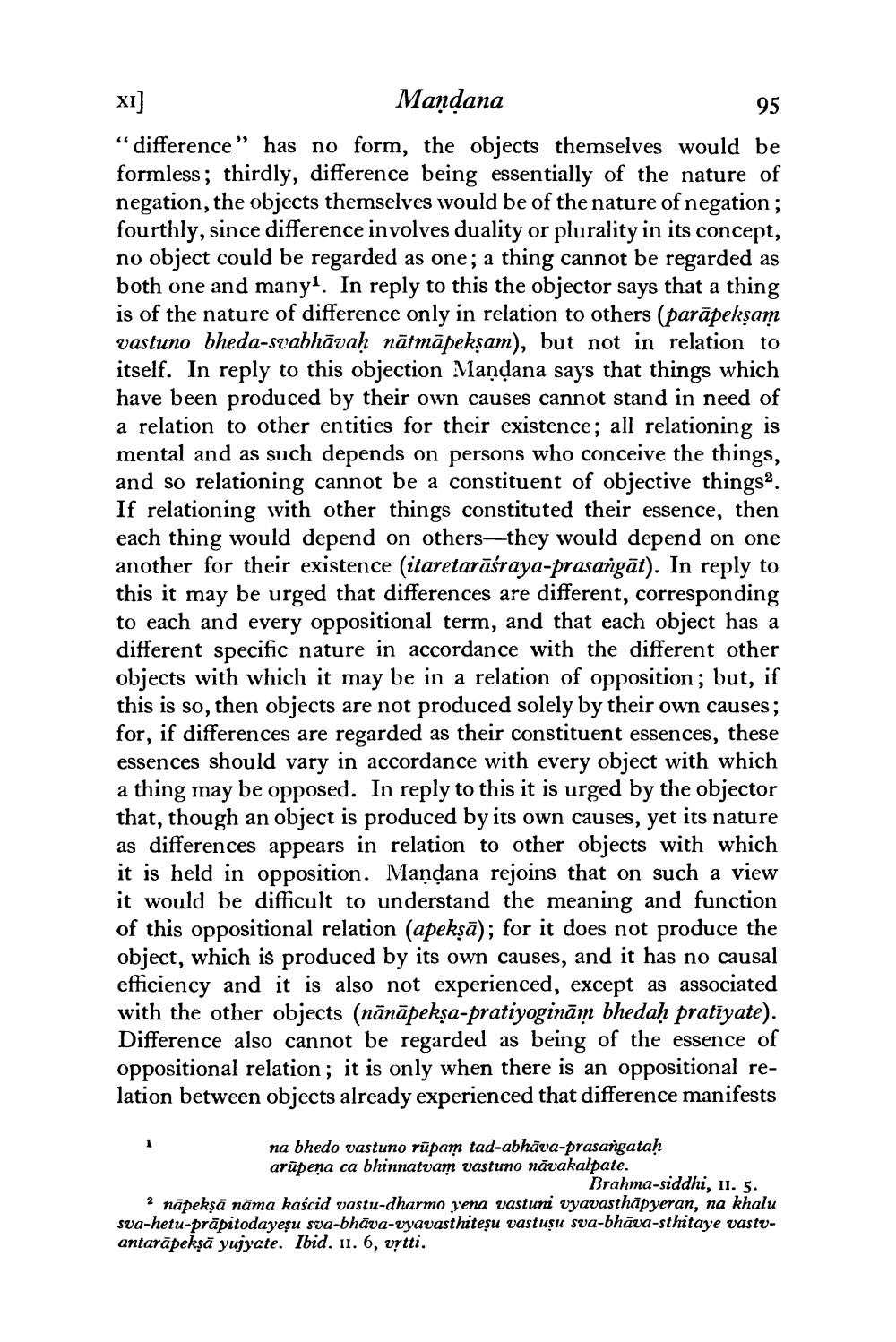________________
xi] Mandana
95 “difference” has no form, the objects themselves would be formless; thirdly, difference being essentially of the nature of negation, the objects themselves would be of the nature of negation; fourthly, since difference involves duality or plurality in its concept, no object could be regarded as one; a thing cannot be regarded as both one and manyl. In reply to this the objector says that a thing is of the nature of difference only in relation to others (parāpekşam vastuno bheda-svabhāvaḥ nātmāpekşam), but not in relation to itself. In reply to this objection Mandana says that things which have been produced by their own causes cannot stand in need of a relation to other entities for their existence; all relationing is mental and as such depends on persons who conceive the things, and so relationing cannot be a constituent of objective things2. If relationing with other things constituted their essence, then each thing would depend on others—they would depend on one another for their existence (itaretarāśraya-prasangāt). In reply to this it may be urged that differences are different, corresponding to each and every oppositional term, and that each object has a different specific nature in accordance with the different o objects with which it may be in a relation of opposition; but, if this is so, then objects are not produced solely by their own causes; for, if differences are regarded as their constituent essences, these essences should vary in accordance with every object with which a thing may be opposed. In reply to this it is urged by the objector that, though an object is produced by its own causes, yet its nature as differences appears in relation to other objects with which it is held in opposition. Mandana rejoins that on such a view it would be difficult to understand the meaning and function of this oppositional relation (apekṣā); for it does not produce the object, which is produced by its own causes, and it has no causal efficiency and it is also not experienced, except as associated with the other objects (nānāpekșa-pratiyoginām bhedaḥ pratīyate). Difference also cannot be regarded as being of the essence of oppositional relation; it is only when there is an oppositional relation between objects already experienced that difference manifests
na bhedo vastuno rūpam tad-abhāva-prasangataḥ arūpena ca bhinnatvam vastuno nāvakalpate.
Brahma-siddhi, 11. 5. 2 nāpeksā nāma kaścid vastu-dharmo yena vastuni vyavasthāpyeran, na khalu sva-hetu-prāpitodayeșu sva-bhāva-vyavasthiteșu vastuşu sva-bhāva-sthitaye vastuantarāpekşă yujyate. Ibid. 11. 6, vrtti.




